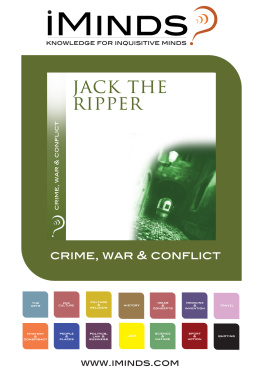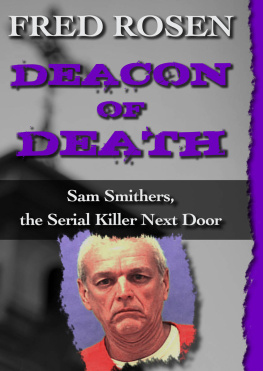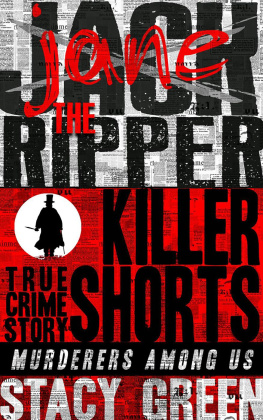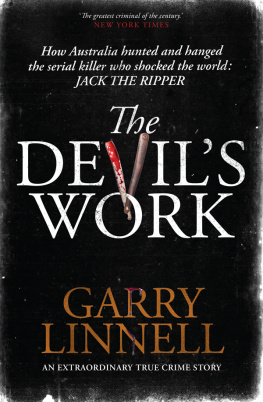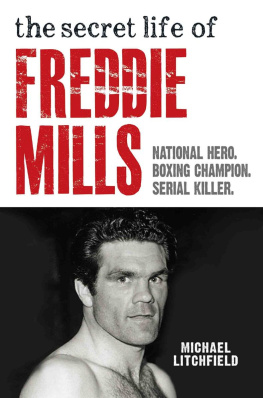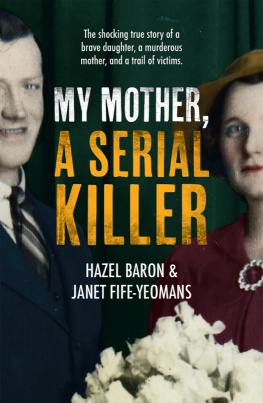POP GOES
THE WEASEL
The Secret Meanings of
Nursery Rhymes
ALBERT JACK
Illustrated by Lara Carlini
ALLEN LANE
an imprint of
PENGUIN BOOKS
ALLEN LANE
Published by the Penguin Group
Penguin Books Ltd, 80 Strand, London WC2R 0RL , England
Penguin Group (USA) Inc., 375 Hudson Street, New York, New York 10014, USA
Penguin Group (Canada), 90 Eglinton Avenue East, Suite 700, Toronto, Ontario, Canada M4P 2Y3
(a division of Pearson Penguin Canada Inc.)
Penguin Ireland, 25 St Stephens Green, Dublin 2, Ireland (a division of Penguin Books Ltd)
Penguin Group (Australia), 250 Camberwell Road, Camberwell,
Victoria 3124, Australia (a division of Pearson Australia Group Pty Ltd)
Penguin Books India Pvt Ltd, 11 Community Centre, Panchsheel Park, New Delhi 110 017, India
Penguin Group (NZ), 67 Apollo Drive, Rosedale, North Shore 0632, New Zealand
(a division of Pearson New Zealand Ltd)
Penguin Books (South Africa) (Pty) Ltd, 24 Sturdee Avenue,
Rosebank, Johannesburg 2196, South Africa
Penguin Books Ltd, Registered Offices: 80 Strand, London WC2R 0RL , England
www.penguin.com
First published 2008
1
Copyright Albert Jack, 2008
Illustrations copyright Lara Carlini, 2008
Albert Jack supports the MacKinnon Trust, a registered charity working to
raise public awareness about mental health issues such as schizophrenia and
the care needed by those who suffer and their families, www.mackinnontrust.org
Albert Jacks website is www.albertjack.com
The moral right of the author has been asserted
All rights reserved
Without limiting the rights under copyright
reserved above, no part of this publication may be
reproduced, stored in or introduced into a retrieval system,
or transmitted, in any form or by any means (electronic, mechanical,
photocopying, recording or otherwise), without the prior
written permission of both the copyright owner and
the above publisher of this book
978-0-14-190930-1
This book is dedicated to my mum in Guildford,
Sheila Podmore, because every mum should have
a book dedicated to her at least once in her life.
In fact, let me do it for you. This book is
dedicated to your mum, too:
(insert name here)
Contents
Introduction
I first had the idea of studying the history of nursery rhymes about ten years ago. But at the time, the idea of trawling through history to discover the origins of our favourite nursery rhymes and analyse their meanings, obvious or hidden, was one I didnt altogether relish, to be honest. After all, what could possibly be interesting about a short, fat boy called Humpty or Dumpty, who lived a long, long time ago and who fell off his wall? Or, for that matter, how much fun can you have with three blind mice being chased around the kitchen by a farmers wife? Surely that has happened on farms across the land since knives were first hacked out of flint? And why would anybody, in this case me, want to create a book full of stories such as the one about Jack Horner, a little boy who shoved his thumb into a pie and stole a plum? What drama is there in that? Even I have done a spot of plum-stealing from pies, and I wasnt a bad lad either.
But, instead, this has turned out to be the most rewarding piece of work I have done so far. Because once it becomes obvious that many nursery rhymes have been written about, or evolved from, particular historic events and then used as a means of passing important news around the countryside, simply by word of mouth, then the research becomes a fascinating study into a bygone way of life. For example, would you have expected Humpty Dumpty to be the name of one of King Charles Is cannons located on top of a church tower at the Siege of Colchester in 1648 during the English Civil War? Operated by One-Eyed Thompson, a Royalist gunner, it successfully kept Cromwells forces at bay until the Parliamentarians managed to blow it off the tower, allowing them to take over the town. An important battle was lost (or won, depending on your viewpoint) and a turning point in history then marked by a rhyme, soon repeated in every village and every hamlet as news of the Roundheads victory spread throughout the land.
Or would you imagine for a moment that the three blind mice could be the Oxford Martyrs Latimer, Ridley and Cranmer, all burned at the stake for their faith, by the Farmers Wife, Mary I? Or what about who little Jack Horner really was, my personal favourite the story of the steward to the Dean of Glastonbury, Thomas Horner, who was sent to see Henry VIII with a bowl full of property deeds disguised as a pie in an attempt to bribe the king? On the way to London, Horner, it is said, reached into the pie and a stole a plum piece of real estate for himself a place called Mells Manor. And while some of the other stories behind the rhymes may well have been elaborated, embellished or even rewritten to suit events, in the case of Little Jack Horner there really was a Thomas Horner at Glastonbury who took ownership of Mells Manor during the reign of Henry VIII and whose descendants still live there to this day. All in all, these so-called nursery rhymes arent the innocent little songs for children they purport to be!
The research was the best part of the process as it introduced me to such figures as the sixteenth-century spider expert Dr Thomas Muffet and his daughter, Little Miss Muffet, or Henry VIIIs right-hand man Cardinal Wolsey, the likeliest candidate for Old Mother Hubbard. Not many of us have the chance to write about two such different individuals in the same week. The following week, a savvy London prostitute, Lucy Locket, made her appearance, accompanied by Prince Frederick (son of mad king George III), the Grand Old Duke of York and blundering military commander who disastrously marched his men to the top of the hill, at Toucoing in northern France, where they were soundly defeated. The week after that, I was visiting some wonderful old London churches for the origins of Oranges and Lemons and becoming acquainted with the dark schemers who helped Richard III to power and whose careers may have inspired Hey Diddle Diddle.
The historical significance of childrens rhymes is often lost on most adults, let alone the children who learn them by heart almost as soon as they learn to say anything at all. For all of us, the first things we are taught, after learning how to talk, are nursery rhymes. Hence by the time we are adults, we will know the words to hundreds of them without ever being aware of their meaning or real importance. And they are important, in my view, because many of them tell the true tale of some of historys darkest or most tragic events. Knowing the origins of a rhyme will help to preserve that piece of history, or the layers of stories that accrue around a centuries-old verse. It also provides a fascinating insight into how news of historical events was transmitted around the land long before the days of instant communication by telephone, radio, television or the internet.
The name forever associated with English nursery rhymes is Mother Goose, conjuring an image of a cheerful, well-upholstered countrywoman who makes up rhymes to entertain her large brood of equally cheerful children. The term, associated with no specific writer and current since the seventeenth century, became widespread largely thanks to a French book of fairy tales by Charles Perrault. Published in 1697 and best known by its subtitle,


